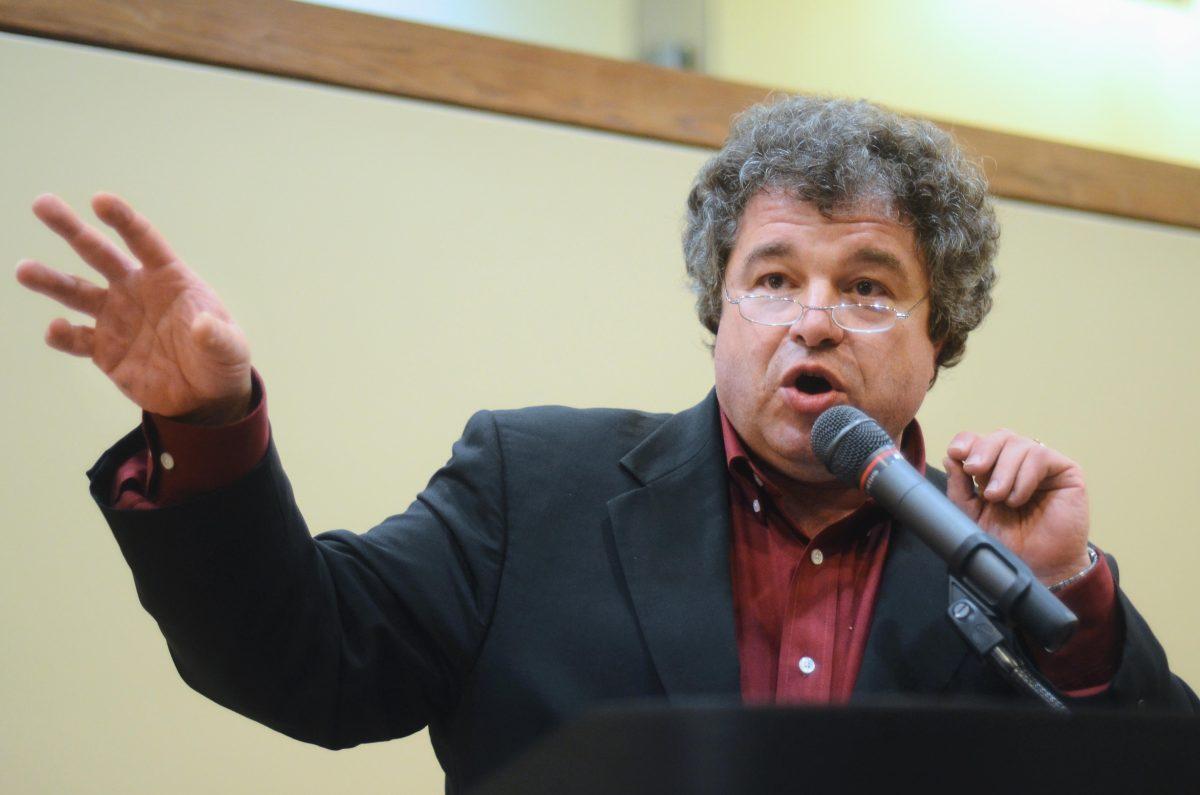Regardless of what year it is or how far past segregation and racism the world moves, there will always be the memories and the fear that things will change for the worse instead of continuing to get better.
Timothy Tyson is a senior scholar at the Center for Documentary Studies at Duke University and a visiting professor of American Christianity and Southern Culture in the Duke Divinity School.
Tyson was asked to come to N.C. State to talk with creative writing students in particular about his writing of creative non-fiction. In “Blood Done Sign My Name,” Tyson writes about the murder of an African American who was murdered in Oxford, N.C, where Tyson grew up. At the time of Henry Marrow’s death Tyson was 10 years old.
Those accused of Marrow’s death were acquitted of the charges, despite testimony and the confession of one of the three white men accused of the murder. Throughout the book, however, Tyson includes personal memories of his time growing up in Oxford, as well as Sanford, N.C.
Although the book includes dialogue from times when Tyson was much too young to remember the dialogue, “Blood Done Sign My Name” is still considered non-fiction.
“History is a work of the imagination, because, yes, there are all the facts, but that’s all that’s left, but you have to sort of make it into a story, you’re telling them or interpreting them,” Tyson said.
In writing creative non-fiction, Tyson said that the information still has to be gathered from as many sources as possible.
While writing “Blood Done Sign My Name,” Tyson said he spoke with a multitude of people who either witnessed the murder of Marrow or were aware of the events. He said he spoke with people such as the Teel’s, who were accused of the murder, as well as people who lived in Oxford at that time. Also, Tyson went through court documents and reviewed the legal proceedings from the trial.
“History is impossible. The past is gone. You can never get it back,” Tyson said. “All you’ve got is the words to the spirituals, the bill of sale and some insurance documents from the slave trade. We’ve got stuff that’s left. Whatever’s left, that’s what we’ve got.”
According to Tyson, all history has at least a bit of fiction in it.
“There’s a fiction in history,” Tyson said. “Remember, the thing it’s telling you about is gone, never coming back. It happened. It’s gone. You can’t get it back, but of course, if you can’t remember it, you’re lost.”
Taking the information found from records and making it into a story requires creativity, according to Tyson.
“You recreate the word and then you tell it. To do that is a work of the imagination. There’s a fiction in history,” Tyson said.
Throughout the evening, Tyson also read passages from “Blood Done Sign My Name,” including parts about him smoking cigarettes and what his parents’ reaction was at the time.
In reading from the book and sharing additional memories, Tyson emphasized the fact that he had these memories, but he couldn’t remember when exactly these events took place.
For example, Tyson’s father took him to a Klan rally. Although Tyson could describe where it was, he couldn’t remember when.
“We went out from Sanford, out through Highway 87, and went out near Peggy’s Fish house, or where Peggy’s Fish house was before that truck hit it. There was a field out there. We watched them burn a cross and say some crazy stuff,” Tyson said. “I was five or six. I do remember it. I don’t remember what we said.”








